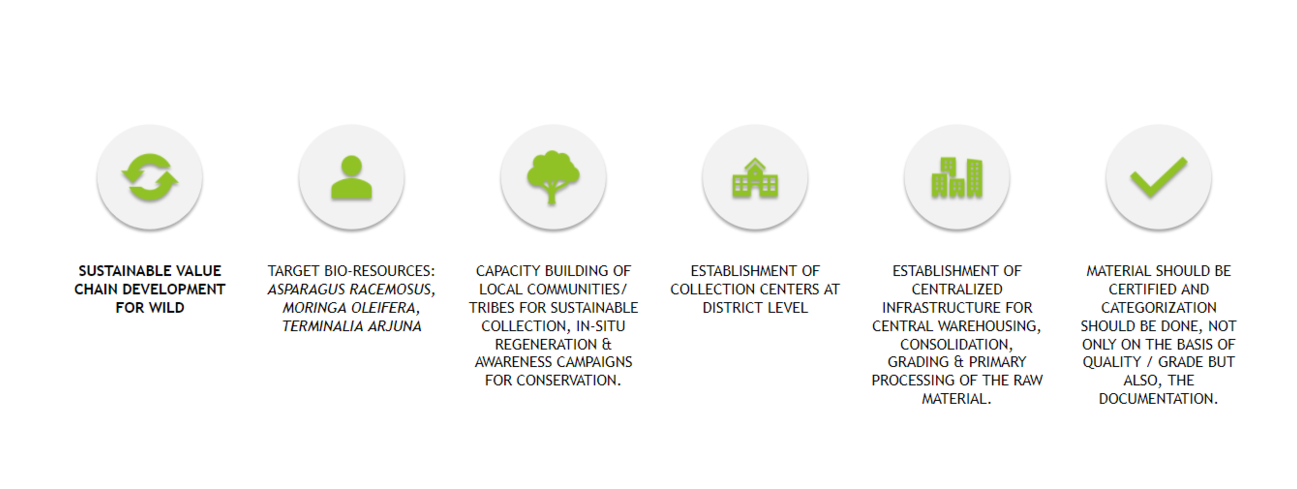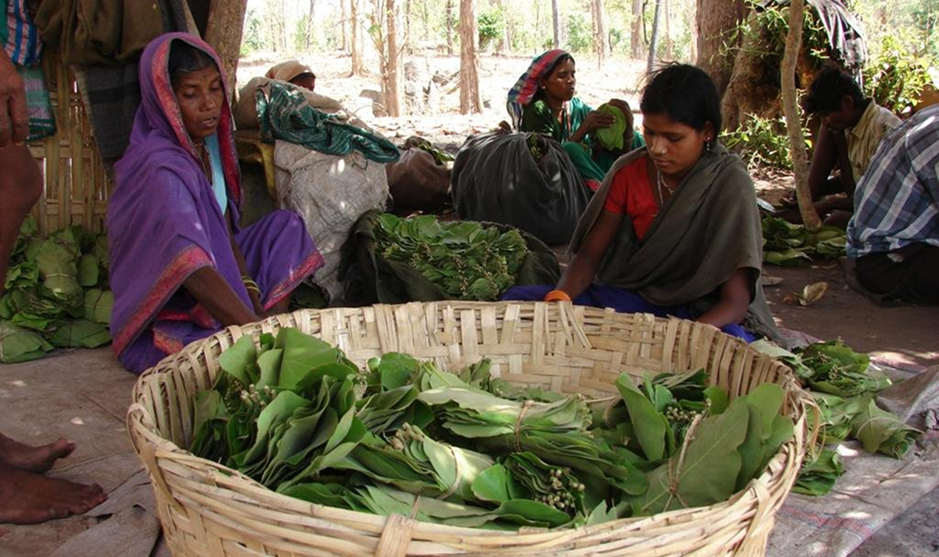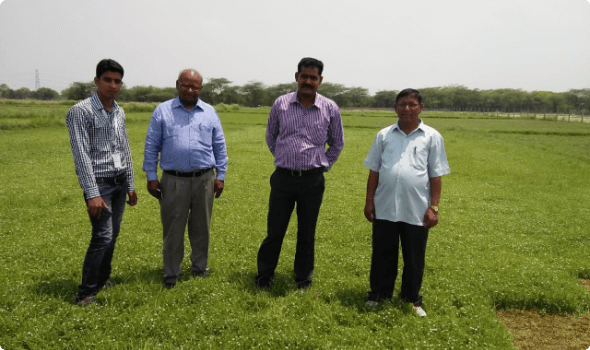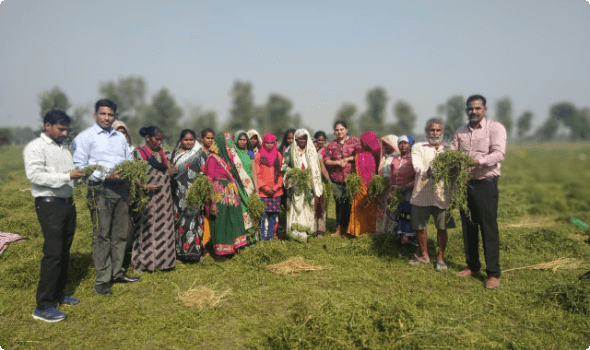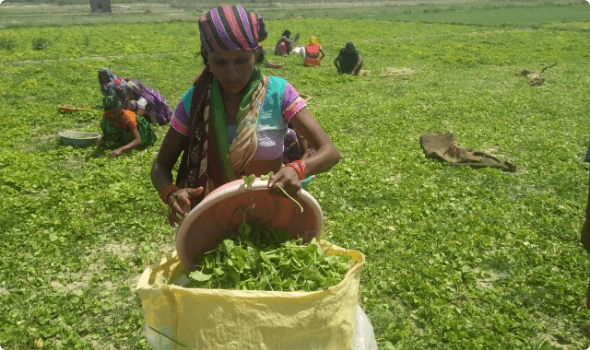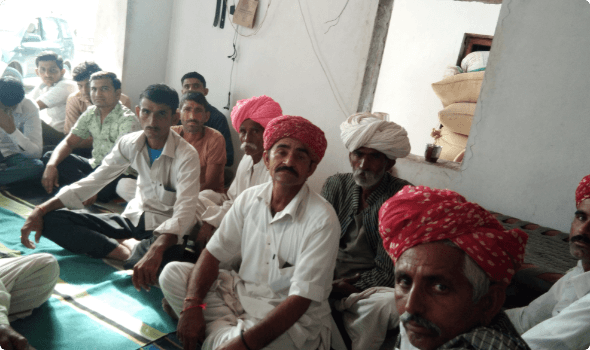
There are countless tribes across our country who are in need of intervention. To help the tribal and forest dweller communities, we directly reached out to them to pass on monetary benefits.
This was in hopes to enable them to spend appropriately on their family needs.
We also facilitated the forest communities to inculcate sustainable harvesting and collection practices. This included introducing to them the concept of forest regeneration, modern agro techniques and crop diversification for doubling farmer’s income. We also trained the farmers in organic cultivation for safe crop production to increase the value of their crops and ultimately enhance their income and prevent soil and water contamination. Our volunteers encouraged the local health bodies to create awareness on nutrition and hygiene amongst these communities.
Case studies:
In Rajasthan, the ‘Nat community’ is deemed as socially unacceptable.Our volunteers helped the women of this community to develop skills that could empower them to choose an alternative path of life. These skills included sustainable collection & agriculture practices and post-harvest management.
In Odisha ‘The Santhalis’ community are paid with raw salt for years together. This gives rise to the issues of Nutritional deficiencies & Naxalism. Our volunteers helped the people of this community to develop their post-harvesting skills and empowered them to take up self-employment roles for a better livelihood.
